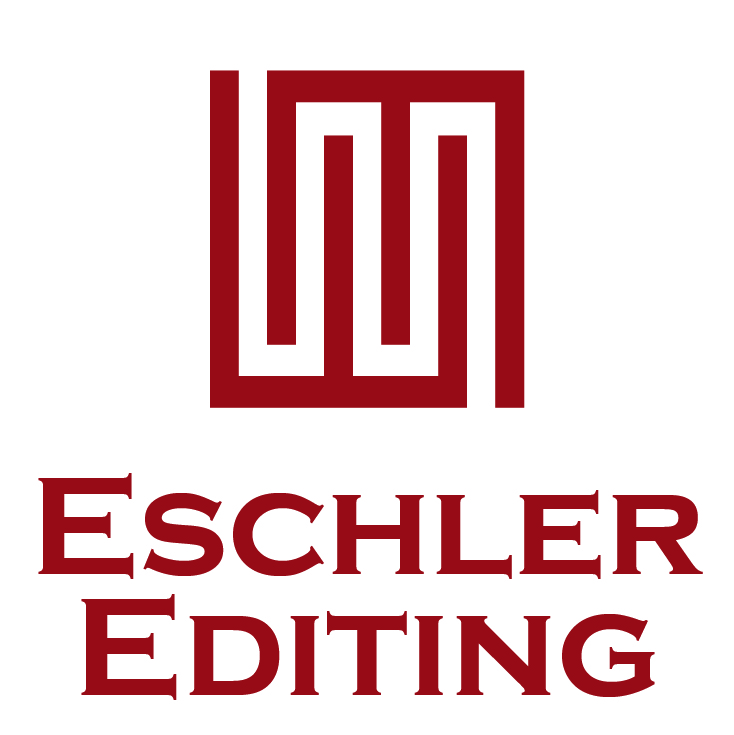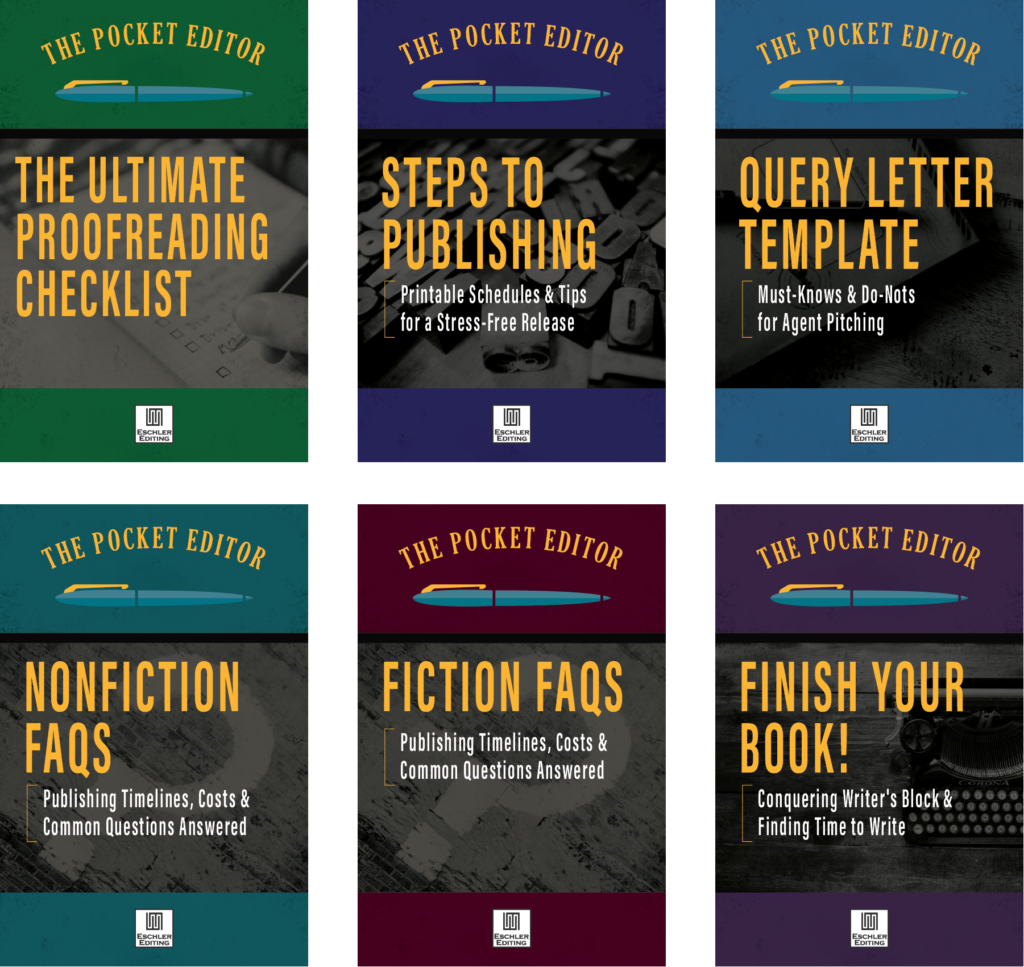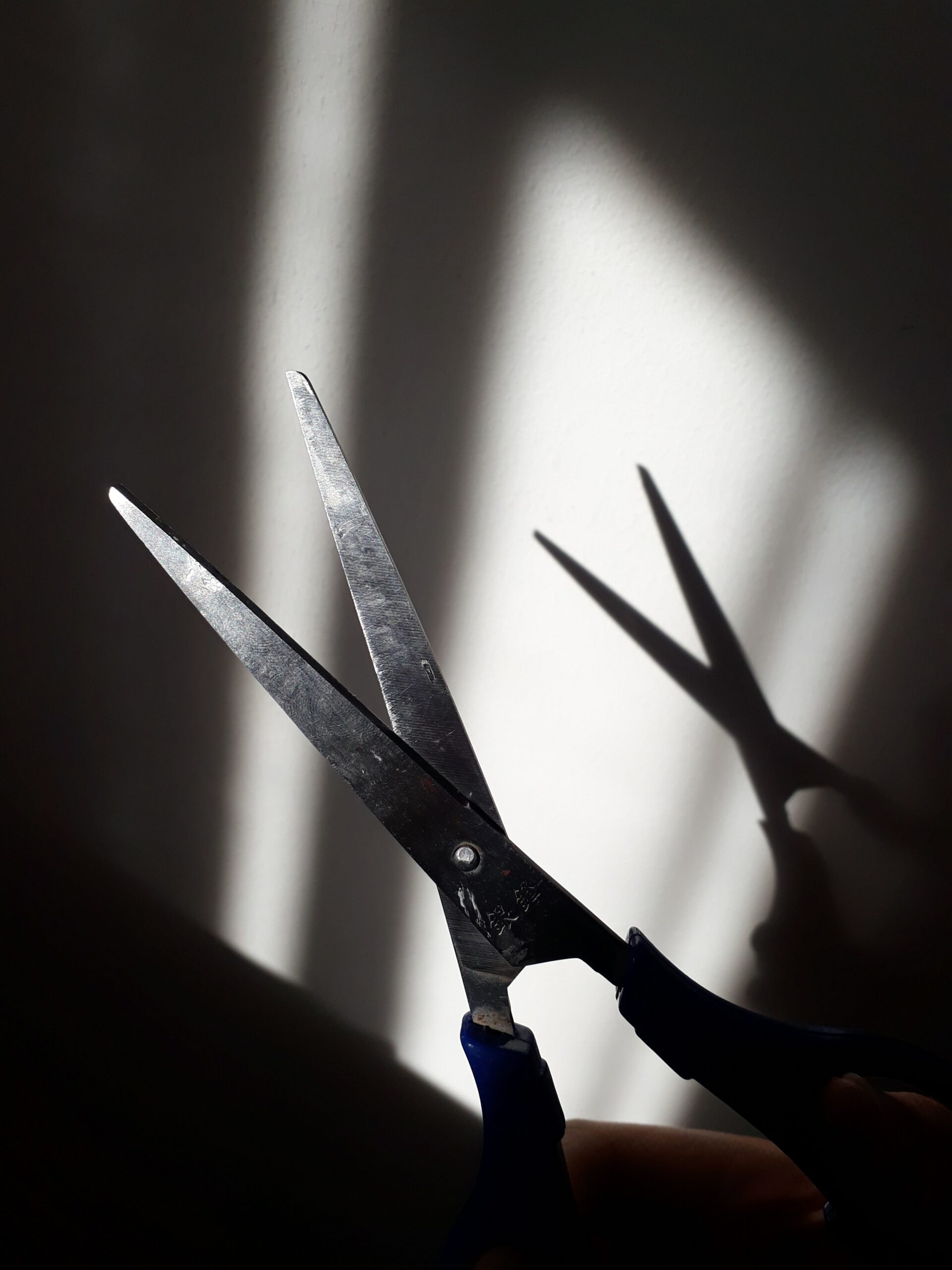by Emilee Newman Bowles
Congratulations! You’ve written your true story or breathed life into characters who once existed only in your imagination—now what? Whether you’ve got fiction or nonfiction under your belt, now it’s time to take a look at your sentences, to smooth them out and make them delight your reader. So take out your red pen (or purple pen or blue pencil if red mark-ups scare you), and let’s start fine-tuning your sentences.
1. Adjectives and Adverbs
You probably learned about adjectives and adverbs in elementary school. An adjective modifies a noun. An adverb modifies a verb. The small child walked slowly down the lane. Small is the adjective and slowly is the adverb. Modifiers are words that tell you more about the subject or action in your book. Sounds pretty good, right? Well, to use a cliché (which you should avoid in your writing), less is more. If you use strong nouns and verbs, you won’t need to embellish them with adjectives and adverbs.
In his book The First Five Pages, Agent Noah Lukeman writes about what motivates him to reject manuscripts. Language is one of the factors that keeps him reading—or rejecting:
After its presentation, the quickest and easiest way to reject a manuscript is to look for the overuse, or misuse, of adjectives and adverbs. Most people who come to writing for the first time think they bring their nouns and verbs to life by piling on adjectives and adverbs, that by describing a day as being ‘hot, dry, bright and dusty’ they make it more vivid. Almost always the opposite is true.
Why wouldn’t more descriptive words be better? There are good reasons to cut back on your adjectives and adverbs. Take this sentence: “The snow was bright, sparkly, and cold.” If you have too many descriptors, they distract from each other, and we almost forget what the subject was. Your readers shouldn’t have to figure out which descriptor is most important.
Have you ever seen a movie and thought, That’s not the way I imagined it when I read the book? If you provide every detail, readers have no room to use their imagination to fill in the blanks. Assume your readers have a great imagination because they often do, and let them use it. And the parts of a book that readers skim the most are landscape descriptions. Keep it brief so your readers stick with you.
The best nouns and verbs are strong enough to stand alone. Is there a noun that portrays a small child without the adjective? How about toddler? Toddlers are small children. Okay, on to the adverb and verb: walked slowly. Is there one word to portray that? How about meandered, wandered, or trudged? All of these are stronger verbs than walked, and they all tell us a lot more than walked slowly.
What to do with your red pen:
Find a spot in your writing that has more than one modifier and cut all but one of them. Choose the best one. In my example above, the snow was bright, sparkly, and cold. Which one is most important? Snow by its very nature is cold, so we can cut that one. Bright and sparkly are pretty similar but have a slightly different connotation. Which one best fits your scene?
Now, pick an important scene in your novel. Find all the adjectives and adverbs and cross them out. It may be painful, but you can do it. Once your scene if free of modifiers, read it and find your nouns and verbs. Are they strong enough on their own? Good. Leave them that way. If not, find a better word. The thesaurus is great for getting ideas flowing, but don’t use words you don’t already know; your readers might not know them either, and you want them reading your book, not the dictionary.
What to read: The First Five Pages: A Writer’s Guide to Staying Out of the Rejection Pile, by Noah Lukeman
2. Punctuation
Punctuation is another thing you learned in elementary school. But now it’s time to learn to use it well. Punctuation is a courtesy to your readers, telling them how to read your sentences. Punctuation is at its best when the reader doesn’t even notice it. If your punctuation draws attention to itself, make sure what you’re saying is worth that attention. Periods and commas are the simplest forms of punctuation, and you probably know how to use them most of the time. So let’s have some fun with some other punctuation marks.
Semicolons: I love semicolons; I wrote a paper about semicolons when I was in college. Semicolons are used to connect two complete sentences that are closely related. You should be able to replace a semicolon with a period, and each new sentence should make complete sense on its own. You use a semicolon if you want to tell the reader, “Hey, these two ideas have something in common—pay attention to them.” As a reader I love coming across a well-placed semicolon. But please don’t use them in fiction dialogue. It’s a little odd and draws too much attention to itself, pulling the reader out of the story. Best to keep it to narration only. In nonfiction, you also use the semicolon to separate items in a series if the items contain commas (so a list where each item might have a mini list within it).
Colons: Use colons to introduce a list or a quotation. Colons aren’t used too often in fiction, so be sure yours are well placed and necessary.
“The colon should be used when you want to clearly offset a point.” – Noah Lukeman, The First Five Pages
Dashes: There is more than one kind of dash. A hyphen is the shortest and is used to connect words. An en dash (called that because it’s the width of an “n” in the original hot-lead typesetting process) is used to separate numbers: 1–4. An em dash (you guessed it—it’s the width of the letter “m”) can be used like a colon or to offset a tangent. Em dashes are fun—they draw attention to themselves—but don’t use them too much.
Ellipses: Ellipses (ellipsis is singular) are used to indicate that there’s something missing from a quote. Fiction writers like to use them . . . in dialogue . . . to show hesitation . . . or pauses . . . in the conversation. But using too many gets distracting. Use them sparingly and they will be more effective.
Parentheses: A parentheses are quieter than other punctuation marks. They can be used to give important (but side) information. They’re generally not to be used in fiction unless you’re going for an overt literary feel where the narrator is more present. And don’t forget that closing parenthesis!
Exclamation Points: Don’t use exclamation points just to make a simple statement seem important or urgent! Only use them for true excitement or yelling. There is a difference between a character in your book saying “Fire” and saying “Fire!” Exclamation points do have their place, but they are often overused.
Commas: We’ve saved this for last since there are a zillion scenarios in which to get a comma wrong (it’s even possible we failed to catch an “oops” in this article!), but we’ve noticed four common situations where commas tend to give writers pause (yes, pun intended).
- The first is comma usage in a compound predicate, where two verbs share the same subject (Jim filed his taxes and got a refund). No comma needed! But two independent phrases are always separated by a comma (Jim filed his taxes, and he got a refund).
- Second, the comma before the word too. If two different subjects are doing an action, there’s no comma (Leslie used a comma. Bob used a comma too). If the same subject is doing two things, add a comma (Bob used a comma and end quotes, too).
- Third, the comma and the speech tag. When should you use a period as opposed to a comma? In order for a comma to be used in a speech tag, you need a transitive verb—a verb that requires an object (Sarah said, “I do.”). However, a comma is not appropriate in “Sarah sighed. ‘I do.'” because sighed doesn’t require an object. An easy way to remember this is that you don’t use a comma if the “speech tag”/verb is not a form of said. If the character is laughing, sighing, or groaning, then use a period between that action and the character’s actual words.
- Fourth, the comma splice. This happens when two independent sentences (that might feel like they could be one connected thought) are incorrectly connected with a comma. An example could come from our text above: “These two ideas have something in common, pay attention to them.” Quick fixes would be to replace the comma with a period, em dash, or semicolon. Or this: “These two ideas have something in common, so pay attention to them.”
What to do with your red pen:
Now that you know a little bit more about punctuation marks, search your novel for dashes, ellipses, and exclamation points. Cut out all but the most important ones. If your punctuation is drawing attention to itself, make sure it’s for a good reason.
What to read: The Chicago Manual of Style is the authority in the publishing world. As you study it, you may notice that your favorite writers might not always follow the rules. As my favorite writing instructor (and many editors) say: “You have to know the rules before you’re allowed to break the rules.” In other words, you should know and master the basics before you experiment.
Download our proofreading checklist—a secret weapon our editors use in-house.
3. Sound
“Prose can be technically correct but rhythmically unpleasant. This is one of the distinctions between writing in general and writing as an art form.” – Noah Lukeman, The First Five Pages
Language works on a sound level. If you’ve read any writing advice at all, you’ve probably been told to read your writing aloud. This will help you hear the sound and cadence of your writing and whether your sentences flow the way you’ve intended. Here are few things to watch for to help your novel’s sound:
Poor Sentence Construction: Someone reads your sentence and just doesn’t get it. This is hard to identify in your own writing because as the author, you already know what it’s supposed to say. This is where you need a trusted reader who will read for sound/sense and tell you if something is confusing or doesn’t sound quite right.
Alliteration: Alliteration is the repetition of a sound, usually at the beginning of the word. ‘The blue ball bounced by the boy.” I love poetry, so I love alliteration. But obvious and accidental alliteration draws attention to itself and away from your story. Make sure you are using it on purpose in a significant line—one you want called out for its impact and artistry, a line that strengthens the tone, mood, and emotional impact of your writing.
Rhyming: You know what rhyming is. And, generally, unless you’re writing poetry, you should avoid it. It sticks out like a sore thumb and sounds out of place in prose. You can get away with it on occasion (for instance, with a false rhyme, possibly), but again—see the rule with alliteration. This should be carefully done, and you should know the effect you’re evoking. I can’t think of a time I’ve seen this done well in a novel, story, etc. (unless you’re going for a Jack Kerouac feel, are using it in an epigraph at the start of a chapter, or in the dialogue of a satirical character).
Dialect: I have always wanted to read Zora Neale Hurston’s Their Eyes Were Watching God, but the dialect her characters speak is hard for me to understand, so I’ve never gotten past the first few pages. Dialect should be easy to pronounce. There’s a fine line between ensuring your words are true to life and making it difficult for your reader to decipher them. Rather than filling your dialogue with unpronounceable words (riddled with apostrophes for every dropped letter), give your characters unique words that fit their dialect and a couple of simple choices (patterns) that represent their accent generally.
Contractions: Now, here’s the good news: if you ever had an English teacher tell you not to use contractions in your writing, forget about it. People really do say aren’t instead of are not, and don’t instead of do not, and there’s instead of there is. It sounds natural because it is natural. Prose without contractions sounds stiff and formal.
What to do with your red pen:
Get a trusted reader to read your work out loud just for sound and mark where something sounds odd or doesn’t flow. Rewrite those sentences and scenes in at least two different ways.
Look for alliteration and rhyming and put those lines aside for when you’re writing poetry (excepting the limited-use rule above).
What to read: The Light of the World by Elizabeth Alexander (a prose book written by a poet) or Out of the Dust by Karen Hesse (a prose book written in verse). Poetry is all about sound, so a poet is a great resource for studying the savvy use of sound.
Do Now
- See our additional line-editing article on the top ten grammar mistakes editors encounter.
- After reading through your manuscript for the corrections above, add the ear candy and give your prose stronger voice through unique sound. Give yourself a few weeks off from your book for this one; you’ll have memorized much of your prose and want to approach it with a new ear. Better yet, engage a friend for this task. Be deliberate in your choices—do you intend to emphasize this emotion, that description? Don’t distract readers from your story. Immerse them in it.
- Get our handy proofreading checklist—a done-for-you guide to instantly replace (with one keystroke!) dozens to hundreds of misused words, typos, and content inconsistencies.
- Make sure you stay within your genre word count limits. If you’re wondering about the standard word counts for each genre, read this.
Wrap-up
One of my favorite contemporary writers, Margaret Atwood, said:
“If I waited for perfection, I would never write a word.”
So don’t let this article scare you away from creating—embrace writing bad sentences! That will get your book done. Once that leap of faith has been taken, be brave enough to take out your red (or purple or green or aquamarine) pen and get to work turning them into great sentences.
Your Turn! Any of these resonate? What’s your top tip for a good experience with self-editing—anything that makes all the difference?





0 Comments